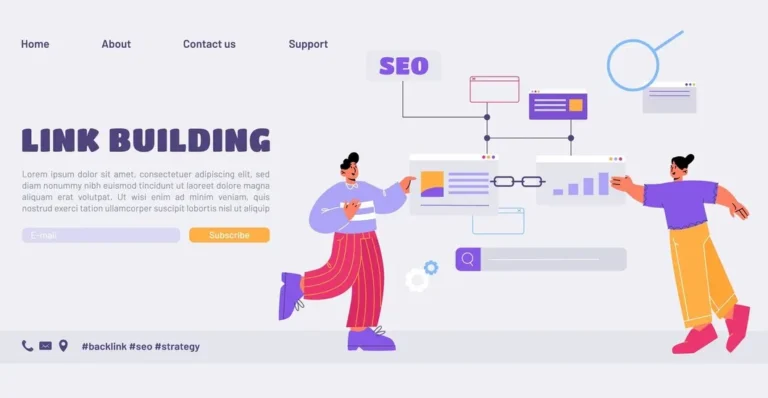AI in Action: Sales and Marketing Trends for Entrepreneurs

Artificial intelligence has moved far. It’s now the backbone of how businesses grow, sell, and connect with customers.
The discussion of artificial intelligence right now isn’t about whether AI will transform sales and marketing, but how quickly founders and entrepreneurs can adapt to the change.
From predictive analytics that anticipate customer needs to generative AI that accelerates content creation, these tools are making it possible for even small startups to compete with enterprise giants.
These shifts aren’t just about efficiency; they’re about creating deeper customer relationships and driving measurable profits.
For business leaders, understanding the latest AI trends in sales and marketing is essential. The companies that seize these trends today will be tomorrow’s market leaders, while those who hesitate risk being left behind.
Why AI Matters for Entrepreneurs
For many founders, the pressure to “do more with less” has never been higher. Limited resources, lean teams, and the constant race to attract customers can make it difficult to compete with larger, well-funded rivals.
That’s where artificial intelligence steps in. Not as a futuristic concept, but as a practical growth engine available right now.
AI is helping entrepreneurs cut costs, speed up operations, and sharpen decision-making. From analyzing vast customer data sets in seconds to automating repetitive tasks, these tools allow founders to focus on strategy and creativity rather than manual work.
AI is leveling the playing field. Startups can now deliver personalized marketing campaigns, intelligent sales outreach, and customer service that rivals, or even surpasses big corporations.
According to McKinsey, companies that adopt AI at scale in marketing and sales have reported up to a 20–30% increase in ROI. For resource-strapped founders, those kinds of gains can make the difference between surviving and scaling.
AI doesn’t just help entrepreneurs save time—it allows them to punch above their weight, moving faster and competing smarter.
For founders, the question is simple: which AI-driven shifts will deliver the biggest impact? Here are six AI trends in sales and marketing that entrepreneurs should keep on their radar.
1. AI-Powered Customer Insights
Understanding customers used to mean running surveys or guessing based on limited data.
Today, AI tools can process millions of data points such as purchase histories, browsing behavior, and even social media interactions, to reveal patterns that humans would miss.
For entrepreneurs, this means you no longer need a large analytics team to uncover who your best customers are and what drives their decisions.
AI-powered platforms can segment audiences automatically, show which products are gaining traction, and even highlight untapped market opportunities.
Imagine a founder running an online clothing brand: AI could reveal that a specific customer segment, say, young professionals, engages more with sustainable fashion items. With that insight, the founder can fine-tune product lines, marketing messages, and ad targeting for higher ROI.
By using AI to understand customers better, startups can act faster, pivot strategically, and outmaneuver larger competitors who rely on slower, traditional methods.
2. Hyper-Personalized Marketing at Scale
Personalization is no longer about “Hi [First Name]” in an email. AI enables businesses to tailor the entire customer journey.
From personalized product recommendations to dynamically adjusting website layouts based on user behavior, founders can now create experiences that feel hand-crafted for every visitor.
A startup with just a handful of employees can deliver the same personalized experience as a Fortune 500 company, thanks to AI-driven platforms. This translates into higher engagement, stronger customer loyalty, and better conversion rates.
For example, AI can adjust an ad campaign so two people viewing the same brand see completely different creative based on their interests. One might see lifestyle-driven content, while another gets a product demo video, maximizing relevance and impact.
For entrepreneurs, this means growth no longer relies on massive ad spend, but on delivering the right message to the right person at the right time.
3. AI in Lead Scoring & Sales Forecasting
One of the toughest challenges for founders is knowing which leads are worth pursuing.
AI-powered lead scoring takes the guesswork out of sales by analyzing behaviors, such as website visits, email engagement, and product demos, to predict which prospects are most likely to buy. This saves startups valuable time and resources, ensuring small teams focus on high-probability deals instead of chasing dead ends.
For sales forecasting, AI goes a step further: it identifies patterns across historical deals and market conditions to project future revenue more accurately.
Take, for instance, a B2B SaaS startup. By using AI-driven lead scoring, the team can prioritize leads that show buying intent like downloading a whitepaper or engaging with pricing pages, while deprioritizing those who aren’t sales-ready.
At the same time, AI forecasting can help founders anticipate cash flow, refine sales targets, and make smarter hiring or investment decisions.
4. Chatbots & Conversational AI
Today, customers expect instant answers, and delayed responses can cost startups both sales and reputation.
Chatbots and conversational AI bridge that gap by providing round-the-clock support, handling FAQs, booking demos, and even guiding users through checkout, all without human intervention.
Unlike early bots that felt robotic, today’s conversational AI systems use natural language processing to engage in fluid, human-like conversations. This not only improves customer satisfaction but also builds trust by offering consistent and accurate responses.
A small e-commerce founder, for example, could deploy a chatbot that answers product questions, suggests alternatives, and offers discounts in real time. The customer gets immediate value, and the founder reduces the need for extra support staff.
Whether you’re serving 10 customers or 10,000, AI-powered chatbots can maintain the same level of service, helping entrepreneurs compete on customer experience without ballooning costs.
5. Predictive Analytics for Customer Retention
Winning new customers is expensive; keeping them is where the real profits lie.
AI-powered predictive analytics helps founders anticipate churn by analyzing user behavior, engagement levels, and feedback. When customers start showing signs of disengagement, AI alerts businesses early enough to take action.
This proactive approach means startups can step in with personalized re-engagement campaigns, such as offering a discount, sending helpful resources, or assigning a dedicated rep. Instead of losing customers silently, founders gain a chance to rebuild loyalty and extend lifetime value.
For example, a subscription-based app could use AI to detect when a user’s activity is declining. Before the cancellation happens, the company can send a tailored message with a special offer or highlight new features to reignite interest.
By shifting retention from reactive to proactive, AI ensures that startups not only grow but also sustain their customer base in a competitive market.
6. Generative AI in Content Creation
Marketing has always depended on content, but producing enough of it can overwhelm small teams.
Generative AI tools now help founders create blogs, ad copy, social posts, product descriptions, and even videos at scale.
Instead of spending hours writing, entrepreneurs can use AI as a creative assistant such as drafting outlines, generating first drafts, or brainstorming campaign ideas. This doesn’t replace human input but accelerates the process, freeing founders to focus on refining strategy and adding brand voice.
Consider a founder managing a DTC skincare brand. With generative AI, they can quickly produce personalized product descriptions for different customer segments, generate ad variations for A/B testing, and publish blog content that educates buyers.
When used wisely, generative AI will make you consistently stay visible in a crowded market. For startups, that visibility often means the difference between scaling and stagnating.
Turning Predictions into Profits: How to Apply These Trends
Knowing the trends is only half the battle. The real challenge, and opportunity, lies in applying them effectively.
For founders and entrepreneurs, the key is not to chase every shiny AI tool but to adopt the ones that directly support business goals.
The smartest approach is to start small and scale. For example, begin by experimenting with one AI tool that addresses a pressing challenge: a chatbot to cut support costs, a lead scoring system to improve sales efficiency, or a generative AI tool to speed up content creation.
AI works best when it enhances the tools you already use, such as your CRM, email marketing platform, or analytics dashboard. By embedding AI into existing workflows, founders avoid overwhelming their teams while still unlocking significant performance gains.
AI should be seen as a partner, not a replacement. The most successful entrepreneurs will be those who combine AI’s speed and precision with human creativity, empathy, and strategic thinking.
The Future Belongs to AI-Ready Founders
Artificial intelligence is no longer the future. It’s the present reality reshaping how businesses sell, market, and grow.
From customer insights and personalized marketing to predictive analytics and content creation, the potential of AI is vast. But for entrepreneurs, the real value isn’t in chasing every new tool. It’s in using the right AI trends strategically to create lasting impact.
The next generation of market leaders will be those who combine entrepreneurial drive with AI-powered capabilities. The future of sales and marketing belongs to the founders who are ready to adapt, innovate, and turn these trends into profits.
Author Bio:
Rizky Darmawan is a digital marketer and research nerd who loves helping brands grow with innovative strategies and creative touch. When he’s not diving into brainstorming ideas, you’ll probably find him gardening in his small yard.
Connect with him on https://www.linkedin.com/in/rizkyerde/





